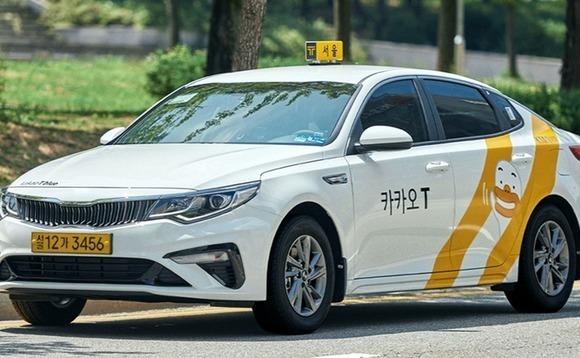
Korea's Kakao considers partial divestment of mobility spin-out

South Korean internet giant Kakao has indicated it may sell around 10% of Kakao Mobility, its transportation division, which has several private equity backers.
The company said in a filing that the sale – part of efforts to maximise shareholder value and support Kakao Mobility's growth – would relegate it to second-largest shareholder. It currently holds 57.5%, with a TPG Capital-led consortium and The Carlyle Group owning 29% and 6.2%, respectively.
A planned IPO for Kakao Mobility was put on hold last August. Since the start of the year, there have been numerous reports about the company trying to reinitiate the listing process and investors pursuing exit options.
MBK Partners is said to working on a deal to buy 50.01% of Kakao Mobility at a valuation of KRW 8.5trn (USD 6.5bn), comprising the TPG and Carlyle holdings, plus a portion of Kakao's stake. Should this transaction come to fruition, Kakao would become the second-largest shareholder. Kakao Mobility's labour union reportedly opposes the sale.
The company was most recently valued at KRW 5.5trn when GS Retail invested KRW 65bn in December 2021, taking overall funding to about KRW 1.11trn. Kakao Mobility then bought parking facility management business GS Park24 – another GS Group affiliate – for the same amount.
TPG has been invested in the company ever since the separation from Kakao. It headed a consortium that contributed KRW 500bn in July 2017, valuing Kakao Mobility at KRW 1.6trn. Carlyle put in USD 200m in February of last year.
Kakao, the product of a 2014 merger between mobile messaging provider Kakao and web portal Daum Communications, has brought private equity and strategic investors into several of its subsidiaries. TPG and Anchor Equity Partners have exposure to KakaoBank, while Anchor also holds a stake in entertainment division Kakao M.
Launched in 2015, Kakao Mobility claims to be Kore's largest mobility-as-a-service (MaaS) platform with 31m registered users and a fleet of 37,000 vehicles. It started out as a taxi-hailing service and expanded into areas such as designated driver services, electric bicycle rental, shuttle bus services, and air, rail, and intercity bus ticket booking.
The Kakao T mobile app provides a single point of access. It also leverages real-time information sourced through the Kakao Mobility network to predict traffic volumes, offer navigation and route-planning services, and track parking lot vacancies.
According to Kakao, the mobility business turned profitable in the 2021 financial year. It is part of the new platform division – alongside payments and enterprise services – which generated about KRW 1trn in revenue in 2021. Kakao's overall revenue for the year was KRW 6.12trn.
Latest News
Asian GPs slow implementation of ESG policies - survey
Asia-based private equity firms are assigning more dedicated resources to environment, social, and governance (ESG) programmes, but policy changes have slowed in the past 12 months, in part due to concerns raised internally and by LPs, according to a...
Singapore fintech start-up LXA gets $10m seed round
New Enterprise Associates (NEA) has led a USD 10m seed round for Singapore’s LXA, a financial technology start-up launched by a former Asia senior executive at The Blackstone Group.
India's InCred announces $60m round, claims unicorn status
Indian non-bank lender InCred Financial Services said it has received INR 5bn (USD 60m) at a valuation of at least USD 1bn from unnamed investors including “a global private equity fund.”
Insight leads $50m round for Australia's Roller
Insight Partners has led a USD 50m round for Australia’s Roller, a venue management software provider specializing in family fun parks.








